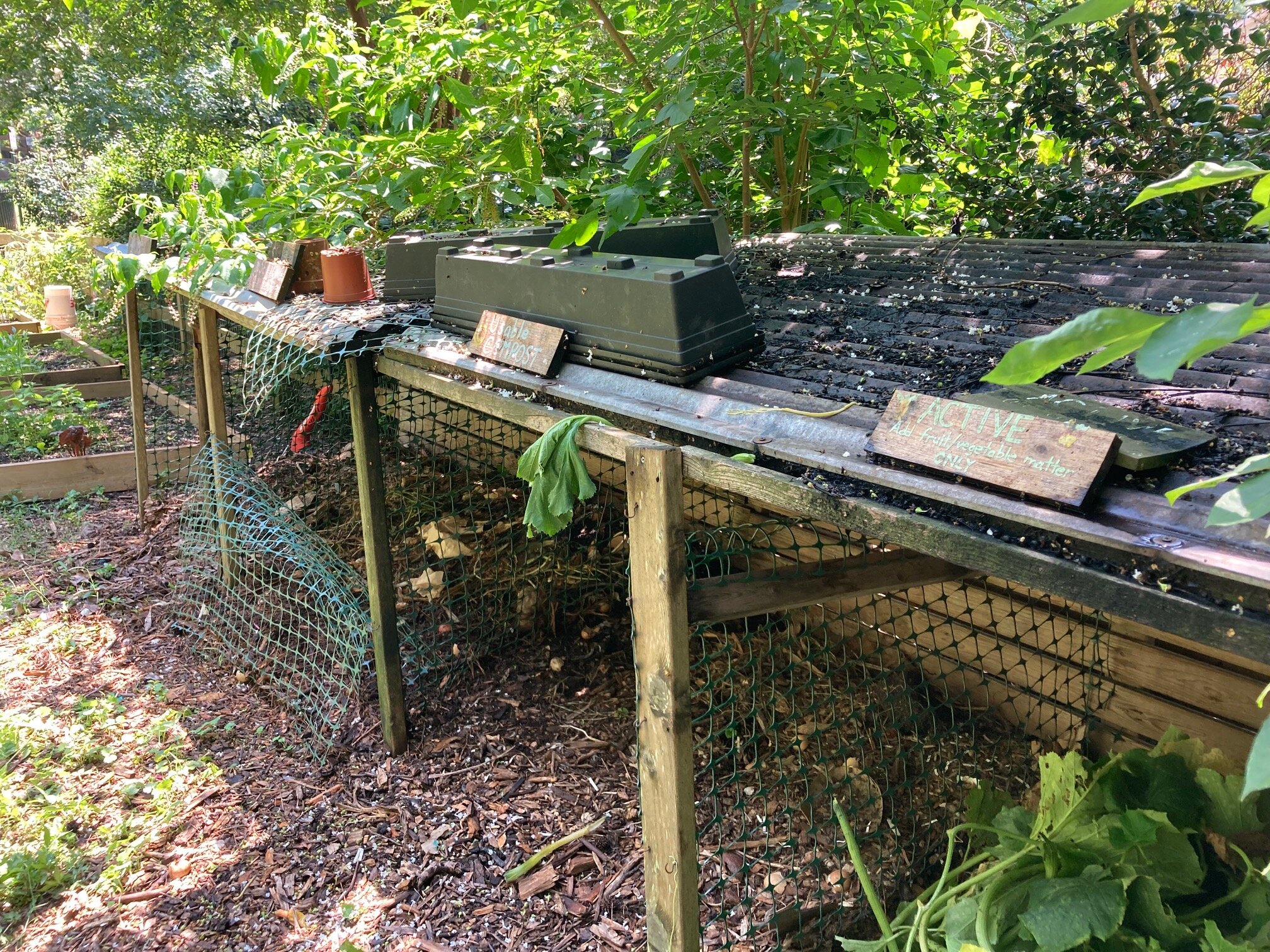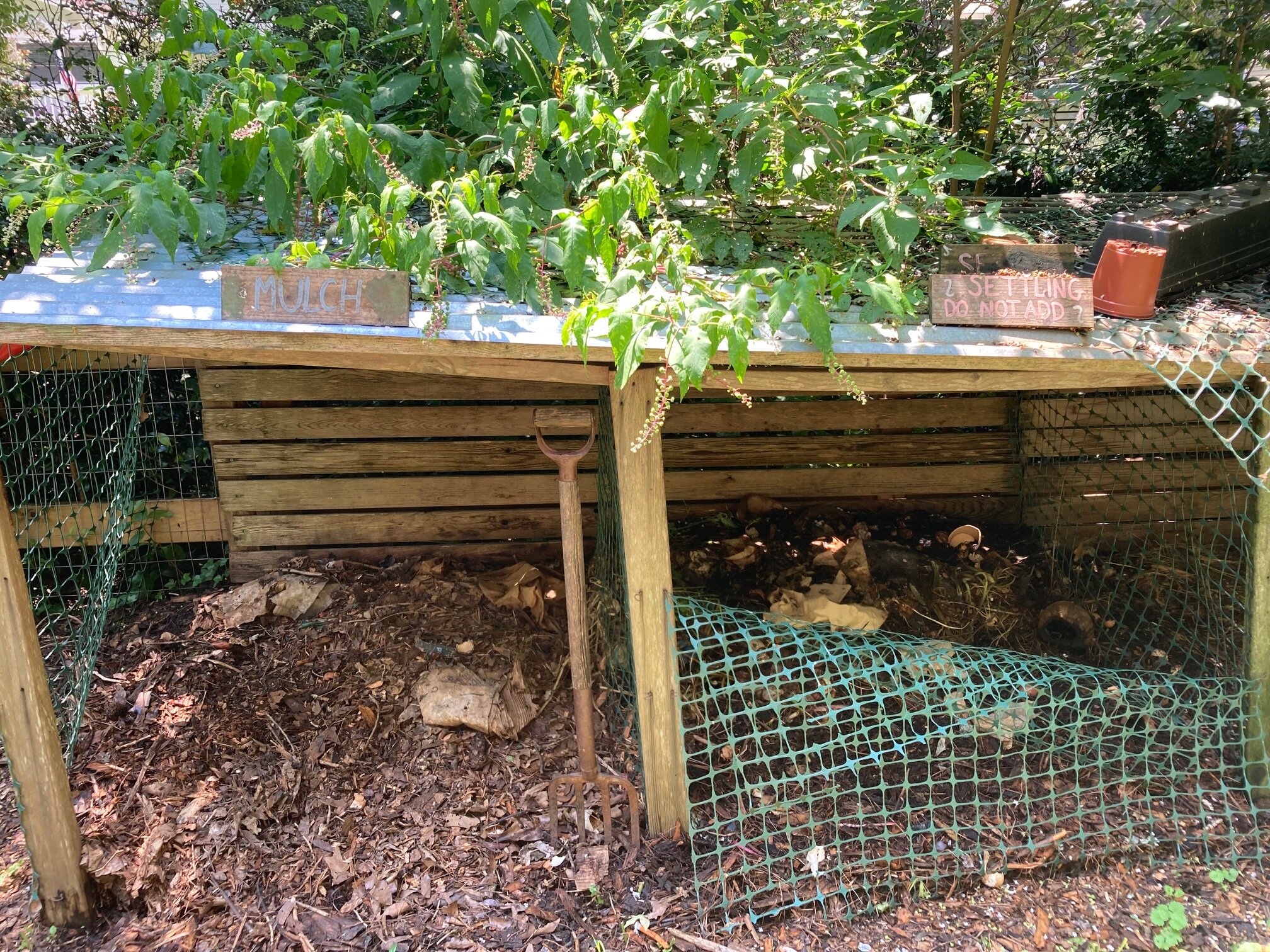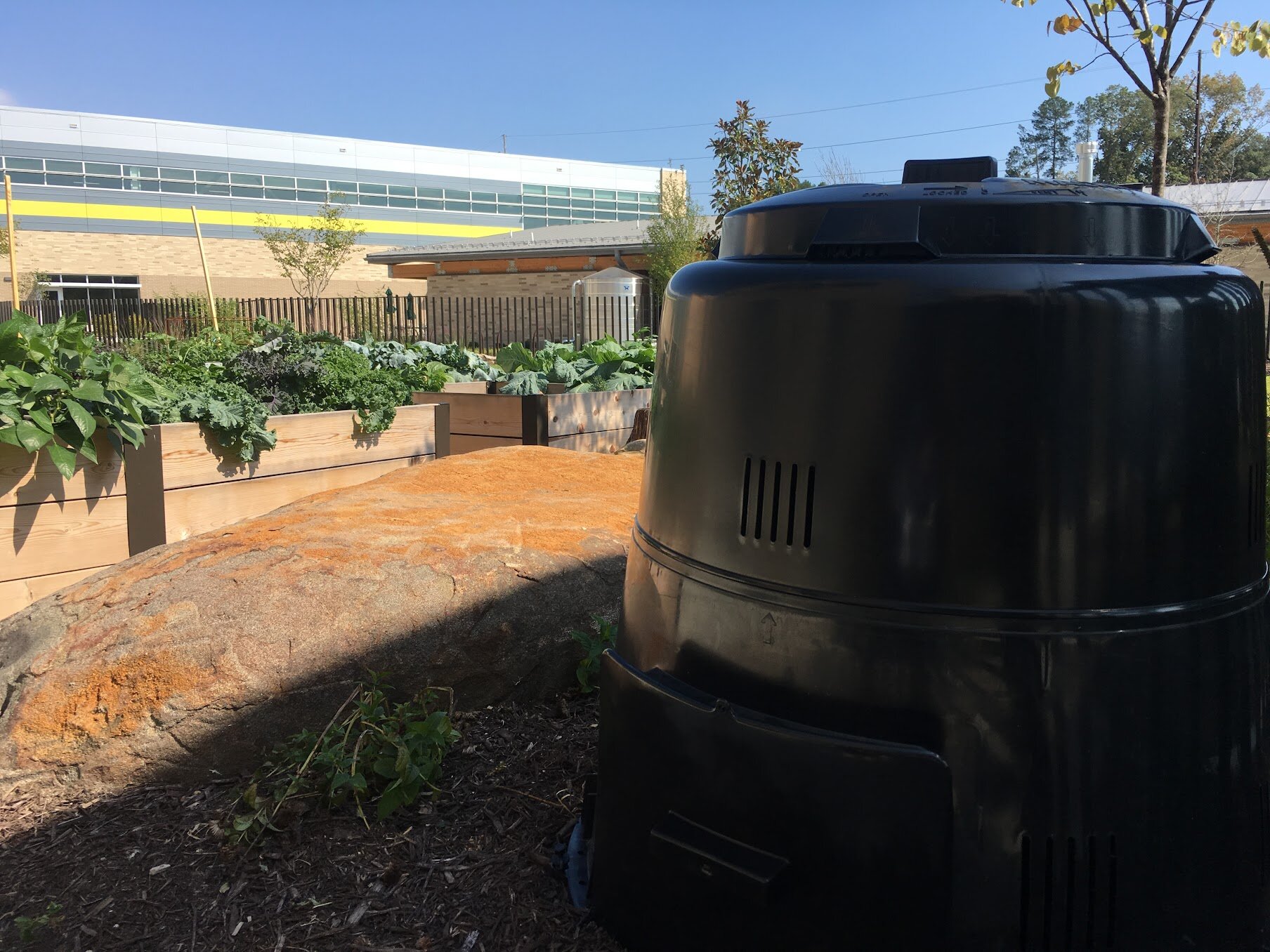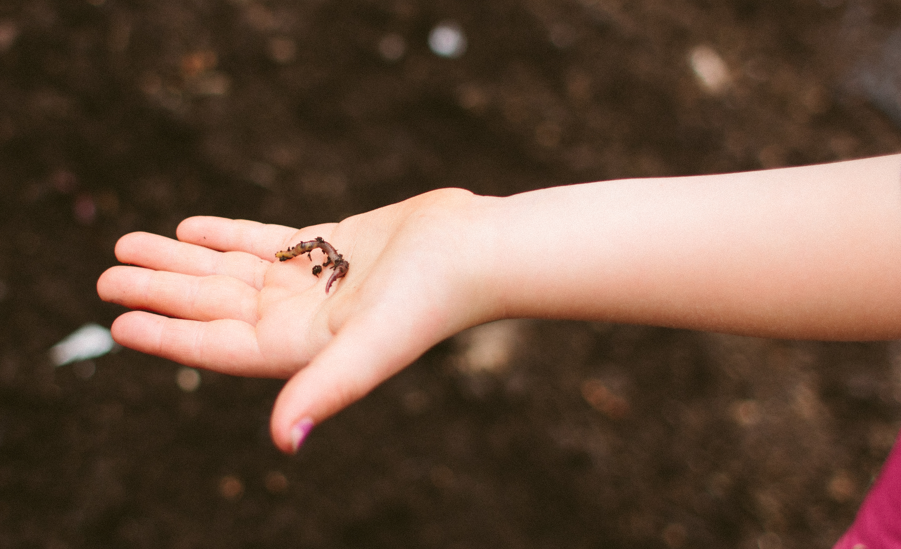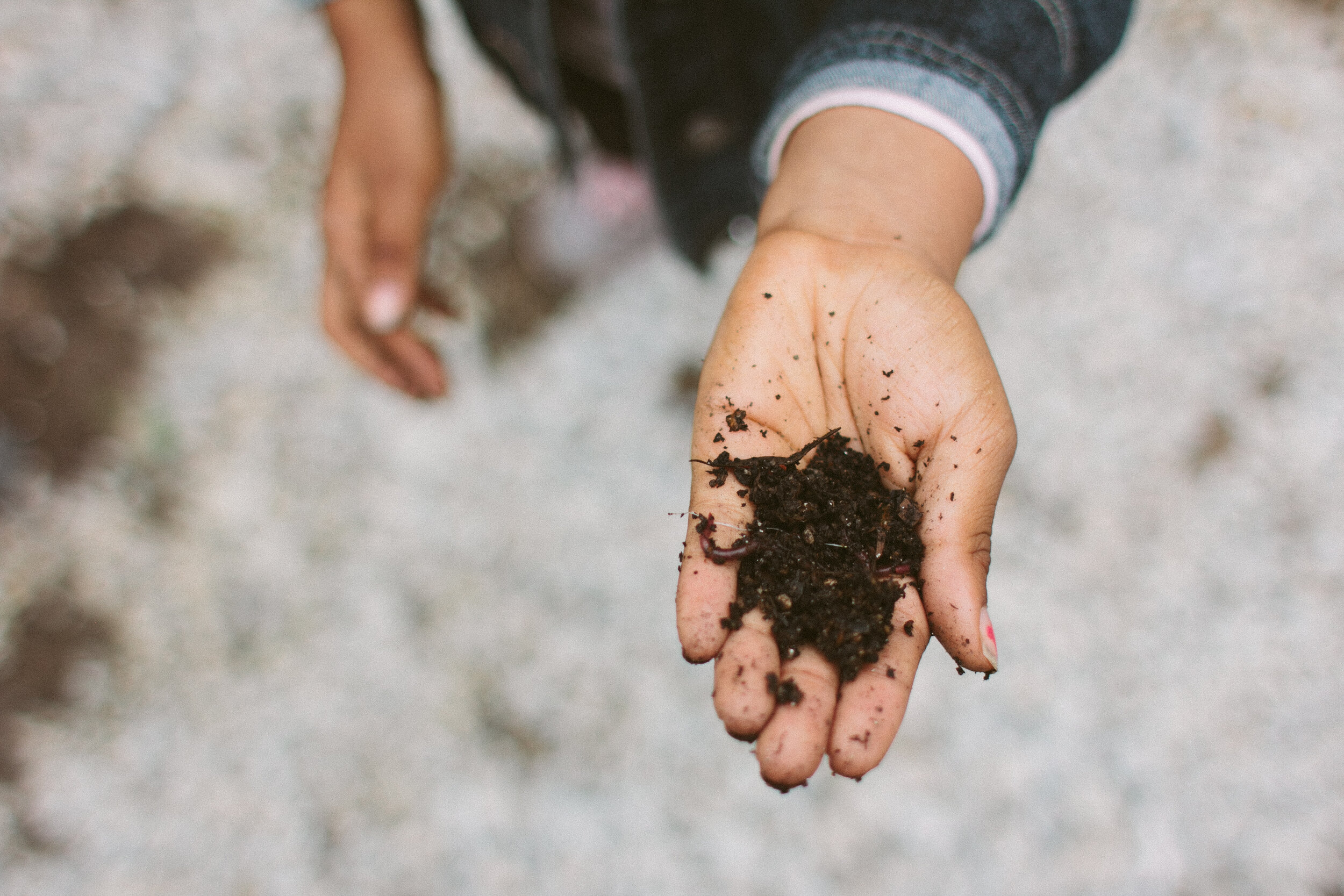By Melissa Needham
Melissa Needham is the summer Farm to School intern at Georgia Organics. She is a Master of Public Health student at the Rollins School of Public Health where she studies behavioral, social, and health education sciences. Melissa developed an interest in gardening and nutrition, education, and health equity while attending Appalachian State University. Interested in exploring the connection between education and health outcomes, Melissa served 2 years as a Teach for America corps member in Selma, Alabama, and 1 year as a Food Corps service member in Raleigh, North Carolina.
To learn more about composting as well as best practices for supporting and engaging English language learners in the classroom, register for the Creating Rich Environments: In the Compost Bin and the Classroom workshop on Thursday, August 12, 2021, from 4:00 - 5:30 PM. This bilingually-presented workshop hosted by Georgia Organics will lead K-12 teachers and early childcare providers through how to best to engage and support English language learners in the classroom through compost education.
Photo credit: Jenna Shea Photography
While some consider coffee grounds, fallen leaves, potato peels, and yesterday’s newspaper as just a few more items to stuff into the garbage, one man’s trash is another man’s treasure. The natural process of recycling organic matter like kitchen scraps, leaves, twigs, and yard trimmings back into a valuable and highly-treasured soil-like material is called composting. With the help of bacteria, fungi, worms, mites, and other decomposers, organic or once-living material is broken down into nutrient-rich compost.
More than Dirt
Aside from creating a rich soil amendment with loads of nutrients to add to your garden, composting diverts landfill waste, reduces greenhouse gas emissions, and revitalizes soil and water.
Composting reduces waste. Organic materials like discarded food and yard trimmings make up nearly one-third of what reaches landfills and incinerators. 1 As organic material breaks down without air in landfills, it produces methane gas—a greenhouse gas 25 times more potent than carbon dioxide. 2 Composting your food scraps, paper, yard trimmings, and more can significantly lower methane emissions.
Photos by Georgia Organics’ Farm to School Director Kimberly Della Donna
Composting improves soil. Compost breaks up heavy, compacted soils like the clay soils we have in Georgia, which allows plant roots to spread, improves soil drainage, and aerates the soil. It functions like a sponge when introduced to soil—it soaks up and holds nutrients and water where the plants need it most. Compost also contains many nutrients that boost soil health and help plants grow and function at their best.
Compost protects and revitalizes water. Because of compost’s sponge-like abilities, adding compost to the soil increases how much water can penetrate the soil which reduces runoff, prevents erosion, and replenishes springs, ponds, and lakes.
Photo by Kimberly Della Donna
The Rot Ingredients
When composting, it’s important to remember your Rule of Threes:
1. Your pile should be 3’x3’x3’
2. Add one-part green to two-parts brown.
3. Keep your pile aerated and moist.
Your pile should be large enough to maintain heat, which means that it should be a minimum of 3'x3'x3' (or one cubic yard). A smaller pile will still produce compost but will take longer to do so. Just like us, our decomposers need three basic ingredients to break down organic material: food, air, and water!
Much like us, decomposers need a balanced diet to perform optimally. We separate the two kinds of organic materials they eat into greens and browns. Green materials are high in nitrogen whereas brown materials are high in carbon. Add one-part green nitrogen-rich material, such as food waste and grass clippings, to every two parts of brown carbon-containing material like newspaper, leaves, branches, and twigs. Avoid adding bones, meat, cheese, and other dairy products or oils, dogs and cat waste, and weeds.
Aerobic organisms need oxygen, so turn your compost every week. Turning too little will result in unfinished, smelly compost. Turning too often will produce finished compost slower and may allow some harmful microbes and weed seeds to survive. Compost should be about 50% moisture, or about as moist as a wrung-out sponge. If the pile is too dry, materials will decompose very slowly and if the pile is too wet, it will produce a foul odor.
Photo credit: Jenna Shea Photography
Harvest your compost when it is a rich dark brown color, smells earthy, feels cool, and crumbles in your hand. Let your compost sit for longer if there are still recognizable pieces of food, the pile feels warm, or compost is producing an odor. With the “rot” ingredients, time, and patience, you can transform your scraps into soil from your backyard.
Creating Rich Environments
There are countless composting methods, so consider your goals, space, and waste when selecting the best method for you. Whether you choose to purchase or construct a composter, or dispose of your waste through a composting service, composting is one of the simplest ways to promote a healthy, sustainable environment.
Register for the Creating Rich Environments: In the Compost Bin and the Classroom workshop here. For additional composting resources, check out our Composting Handbook.


